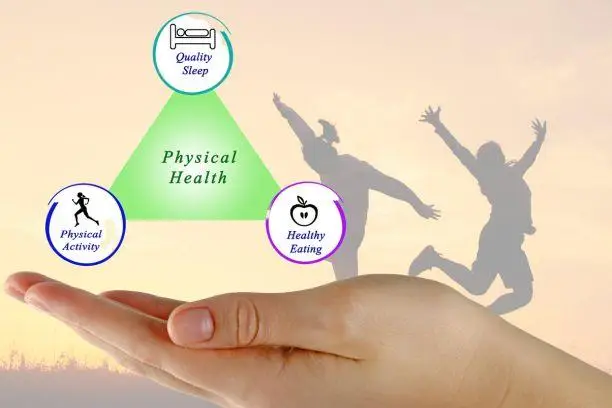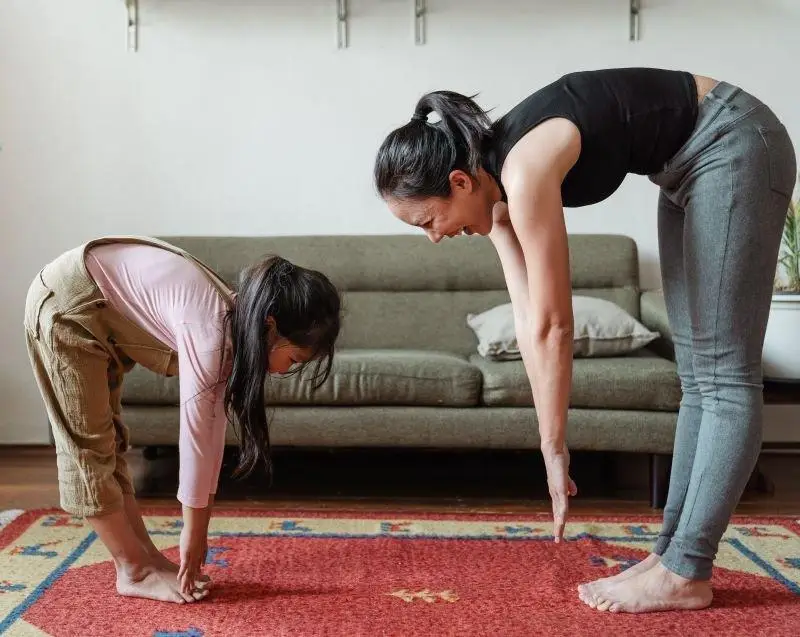In a fast-paced world filled with endless distractions and demands, it’s easy to overlook the importance of our physical health. But fear not, for we have compiled a comprehensive guide to help you kickstart your journey to a healthier, happier you. From simple lifestyle changes to actionable tips, our Physical Health Primer will equip you with the knowledge and tools you need to take charge of your well-being. So buckle up, because we’re about to embark on a transformative journey towards improved physical health.
– Understanding the Importance of Physical Health

Improving your physical health is essential for living a balanced and fulfilling life. By taking care of your body, you can increase your energy levels, boost your mood, and reduce your risk of developing chronic diseases. Here are ten simple ways to enhance your physical health:
- Exercise Regularly: Aim for at least 30 minutes of moderate exercise each day to strengthen your heart, muscles, and bones.
- Eat a Balanced Diet: Focus on consuming a variety of fruits, vegetables, whole grains, and lean proteins to provide your body with essential nutrients.
- Stay Hydrated: Drink plenty of water throughout the day to maintain proper body function and prevent dehydration.
- Get Adequate Sleep: Aim for 7-9 hours of quality sleep each night to allow your body to rest and recharge.
Additionally, it’s important to prioritize regular health check-ups with your healthcare provider to monitor your physical well-being and address any potential issues. Remember, small lifestyle changes can make a big difference in improving your overall physical health. Start incorporating these tips into your daily routine to feel stronger, happier, and healthier.
– Incorporating Regular Exercise into Your Routine

Regular exercise is essential for maintaining good physical health. It not only helps to improve cardiovascular fitness and strength but also plays a crucial role in reducing the risk of chronic diseases such as heart disease, diabetes, and obesity. Incorporating regular exercise into your routine can seem daunting at first, but with a little planning and dedication, you can start reaping the numerous benefits it offers.
One way to make exercise a consistent part of your routine is to find activities that you enjoy. Whether it’s dancing, hiking, swimming, or yoga, choosing activities that you look forward to can help you stay motivated and committed. Additionally, setting specific and achievable goals can keep you on track and provide a sense of accomplishment as you reach each milestone.
Another tip for incorporating regular exercise into your routine is to schedule it into your day like any other appointment. Treat your workout sessions as non-negotiable time blocks that are just as important as any other commitment. By prioritizing exercise in this way, you are more likely to stick to your routine and make it a habit. Finally, consider enlisting the support of a workout buddy or joining a fitness class to hold yourself accountable and make exercise more enjoyable. Remember, consistency is key when it comes to reaping the benefits of regular physical activity.
– Making Healthy Dietary Choices for Optimal Well-Being

When it comes to improving your physical health, there are several key factors to consider. Here are ten ways to help you make healthy dietary choices for optimal well-being:
- Eat a variety of fruits and vegetables: Include a colorful array of fruits and vegetables in your daily diet to ensure you are getting a wide range of nutrients.
- Choose whole grains: Opt for whole grains such as quinoa, brown rice, and whole grain bread over refined grains for added fiber and nutrients.
- Limit processed foods: Minimize your intake of processed foods high in added sugars, unhealthy fats, and preservatives.
- Watch your portion sizes: Be mindful of portion sizes to avoid overeating and help maintain a healthy weight.
| Tip: Drink plenty of water throughout the day to stay hydrated and help your body function optimally. |
Additionally, incorporating lean proteins such as chicken, fish, beans, and tofu into your meals can help support muscle growth and repair. Don’t forget to include healthy fats from sources like avocado, nuts, and olive oil to support brain function and overall health.
– Prioritizing Rest and Recovery for Overall Health and Wellness

1. Prioritizing Quality Sleep: Ensure you are getting at least 7-9 hours of sleep each night. Create a bedtime routine to signal to your body that it is time to wind down and relax. Avoid screens and stressful activities before bed to promote a restful night’s sleep.
2. Incorporating Rest Days: Schedule rest days into your workout routine to allow your muscles to repair and recover. Overtraining can lead to injury and burnout, so listen to your body and give it the rest it needs to perform at its best.
3. Practicing Mindfulness: Take time each day to practice mindfulness and relaxation techniques such as meditation or deep breathing exercises. This can help to reduce stress levels and improve overall well-being.
4. Eating a Balanced Diet: Fuel your body with nutritious foods that provide the vitamins and minerals it needs to function properly. Incorporate plenty of fruits, vegetables, whole grains, and lean proteins into your meals for optimal health and energy levels.
Q&A
Q: What is physical health?
A: Physical health refers to the overall well-being of your body, including your ability to perform daily activities, avoid illness, and maintain a healthy weight.
Q: Why is physical health important?
A: Physical health is important because it affects every aspect of your life, from your energy levels and mood to your immune system and longevity.
Q: What are some ways to improve physical health?
A: Some ways to improve physical health include exercising regularly, eating a balanced diet, getting enough sleep, and staying hydrated.
Q: How does exercise benefit physical health?
A: Exercise helps improve cardiovascular health, build muscle strength, boost mood, and increase energy levels.
Q: What is a balanced diet?
A: A balanced diet includes a variety of foods from all food groups, such as fruits, vegetables, whole grains, lean proteins, and healthy fats.
Q: How much sleep should adults aim for each night?
A: Adults should aim for 7-9 hours of sleep per night to allow their bodies to rest and recharge.
Q: How does staying hydrated improve physical health?
A: Staying hydrated helps keep your cells functioning properly, aids digestion, and can improve energy levels.
Q: Why is it important to manage stress for physical health?
A: Chronic stress can have negative effects on physical health, including increased risk of heart disease, obesity, and other illnesses.
Q: How can social connections improve physical health?
A: Social connections can provide emotional support, reduce stress, and promote feelings of well-being, all of which contribute to better physical health.
Q: What role does prevention play in maintaining physical health?
A: Prevention, such as getting regular check-ups, screenings, and vaccinations, can help catch potential health issues early and maintain overall physical health.
In Summary
In conclusion, taking care of your physical health is essential for leading a happy and fulfilling life. By incorporating these ten simple tips into your daily routine, you can improve your overall well-being and increase your energy levels. Remember, small changes can lead to big results, so start taking steps today to prioritize your physical health. Your body will thank you for it in the long run!



